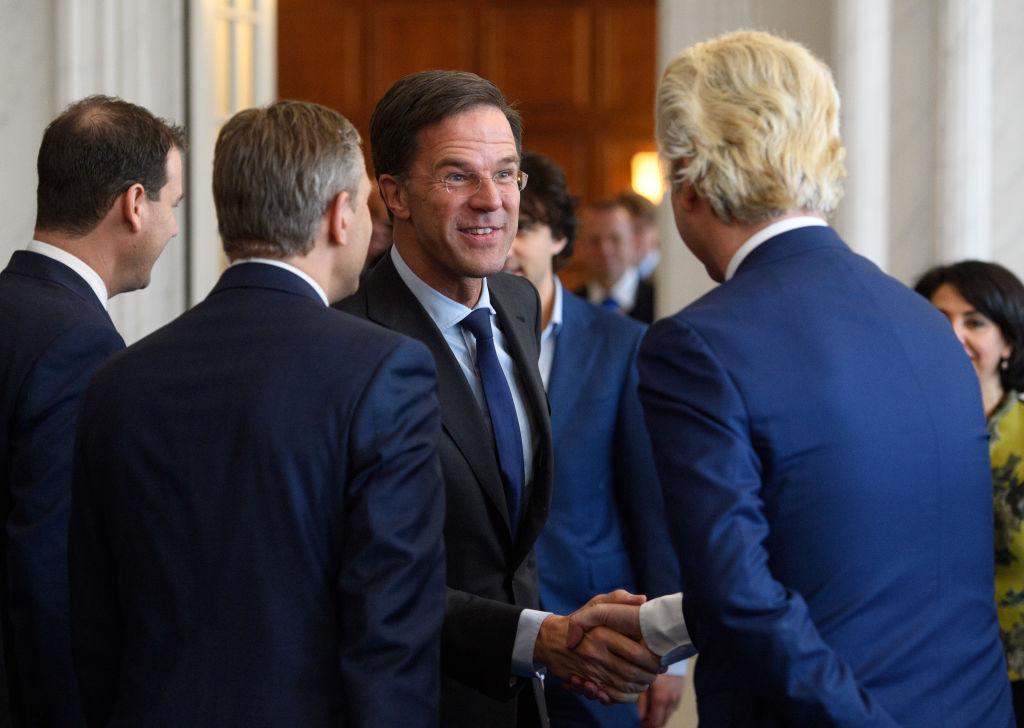AMSTERDAM—EU leaders lined up on Thursday to congratulate Dutch Prime Minister Mark Rutte on beating far-rightist Geert Wilders in the first of a series of European elections this year in which populist insurgent parties are hoping to rock the establishment.
The center-right prime minister had trailed in opinion polls for much of the campaign but emerged the clear victor of Wednesday’s election, albeit with fewer seats than before.
Wilders, who campaigned on an anti-immigration platform and wanted to shut mosques and ban the Koran, won a third more seats than at the last election but was thwarted in his bid to become the biggest party.
Rutte, whose win helped boost the euro and European shares, called it an “evening in which the Netherlands, after Brexit, after the American elections, said ’stop' to the wrong kind of populism.”
A win for Wilders would have been seen as a boost for French far-right leader Marine Le Pen, running second in opinion polls before a presidential election in April and May, and for populist parties elsewhere that want to curb immigration and weaken or break up the European Union.






